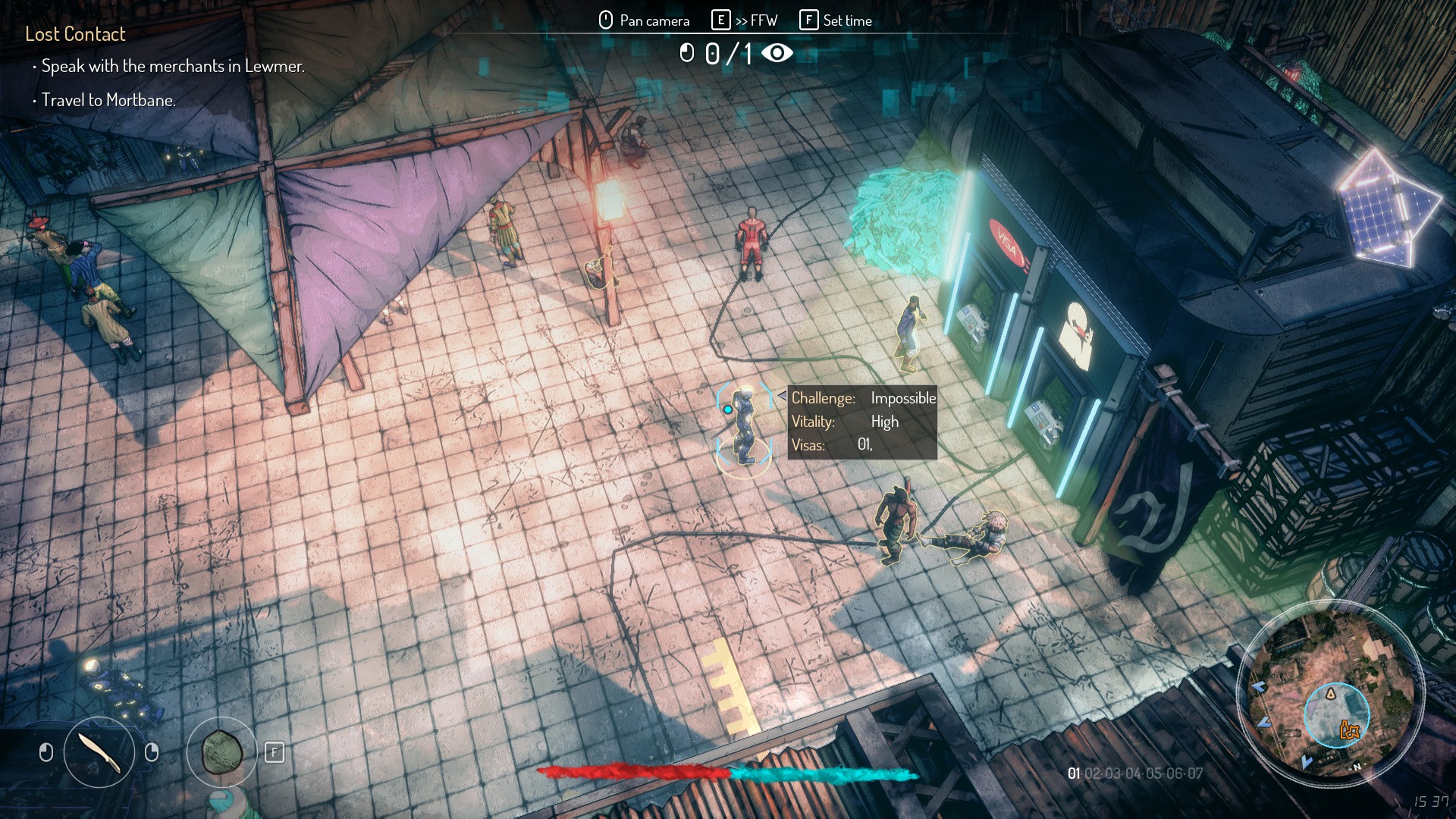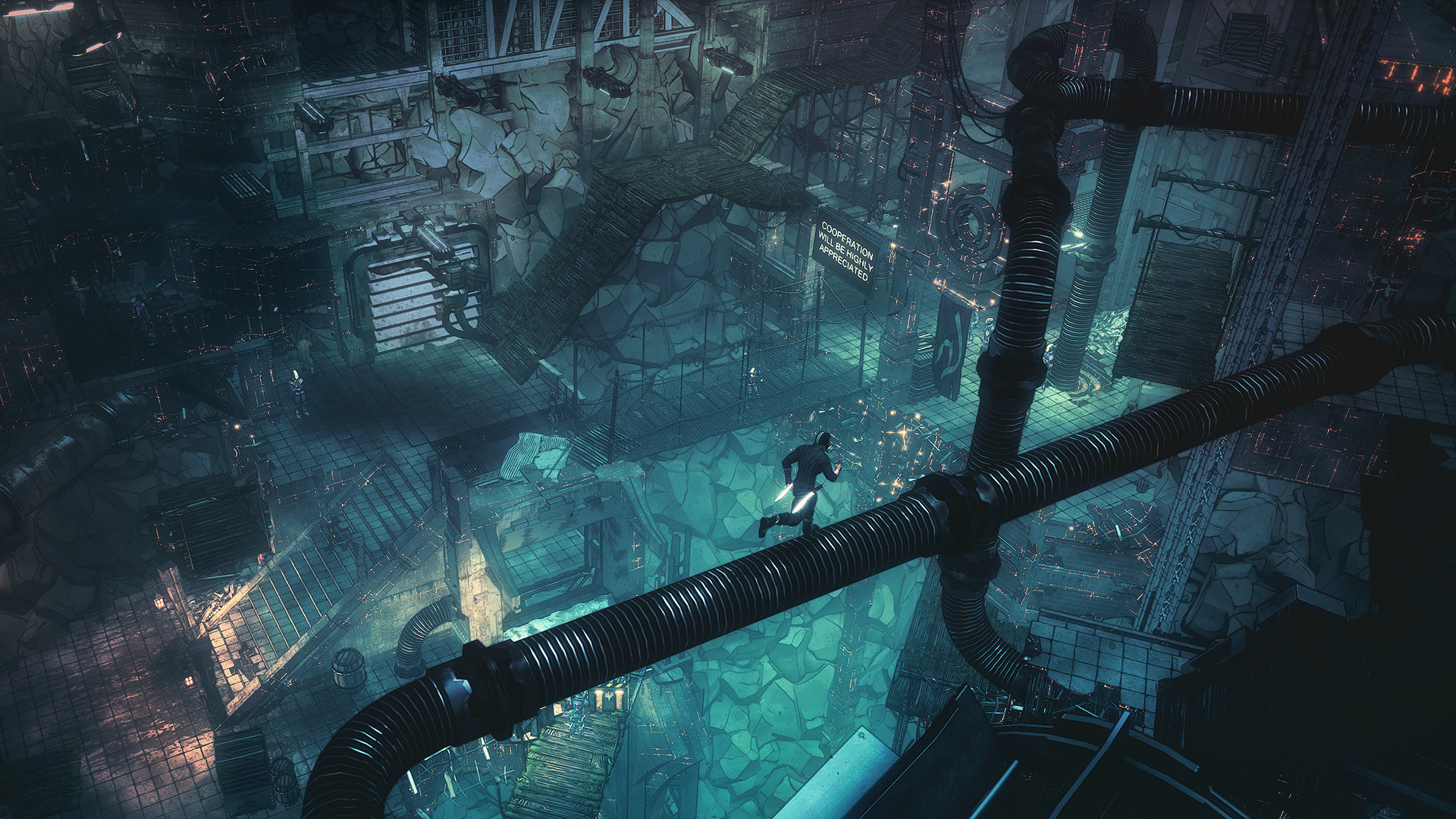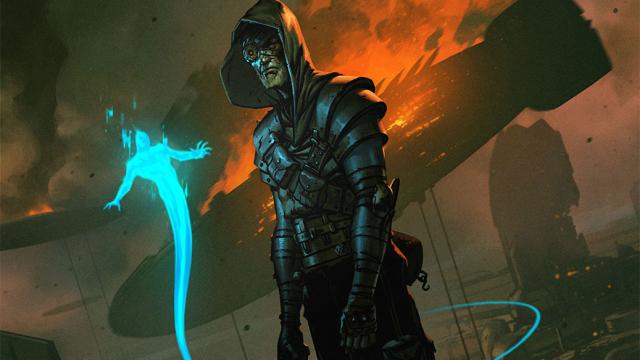I’ve had my eye on Seven: The Days Long Gone since the moment I heard the words “isometric open-world stealth RPG from ex-Witcher developers”. It sounded like a game made just for me. Unfortunately, while Seven has a cool setting and some fun ideas, the glue that holds it all together is sloppily applied.
Seven takes place in a future where humanity has fallen from the height of technological prowess into a sort of cyberpunk slash low-fantasy depression. People still rely on technology, but they’re not the demigods their ancient forebears were. You play as a thief, Teriel, who’s not particularly concerned with any of that. But after a botched job, he gets wrapped up in a scheme involving some of the most powerful people in the world. This involves going to a prison island called Peh, heisting until his pockets bulge, and getting caught up in factional conflicts.
The game’s setting and style are undeniably cool: Think Thief, except with cyberpunk instead of steampunk and a big, strange island for you to explore. The locations range from run-down shanty towns to green valleys and dark industrial complexes, but there’s a certain sickly messiness to them all, bolstered by the spread of an in-universe disease called “tech rot”.

There’s a ton to uncover in each area, too. One of Teriel’s special abilities allows him to slow down time and peer around with a cybernetic eye that auto-highlights traps and treasures when your cursor lands on them. It’s hardly revolutionary – plenty of recent games have had “detective modes” of various sorts – but it definitely adds to the feeling of being this grizzled yet cunning master thief.
The time mechanic shows up elsewhere, too, such as when you’re pick-pocketing, and time stops when you’re choosing what to nab, but resumes while you’re in the act of physically snatching items. It’s a cool little feature that adds tension to the moment without feeling inconvenient or unfair. I should add, too, that you can roam around locations and steal/pickpocket whatever you want, which leads to a great power dynamic where you’re not the strongest or fastest, but you can give a big ol’ middle finger to just about anyone by snatching their valuables from their pockets or homes. For that reason, it’s fun to just roam around open areas and get into trouble – more fun than it is, in some cases, to actually try and progress through the game.
It’s kinda fitting that Seven looks great from a broad, top-down perspective, only to fall apart when held under the microscope. You can try to hack and slash your way through the game, but I don’t recommend it, because combat is clunky and enemies often have a significant power advantage over you. You’re meant to use stealth to get through the levels, but the implementation is inexcusably inconsistent. Wanna backstab someone? In theory, it should be as simple as creeping up behind a dude and making with the stabby-stabby, but roughly half the time, you’ll just do a normal attack instead of backstabbing, which tends to put guards on alert and screw you over.

This would be an insurmountable issue if not for the fact that guards are often deeply, tragically stupid. In my three hours with the game, I’ve had great success just rolling away from them as soon as they see me. It makes for some incredibly funny chase scenes, but somehow I don’t think that’s what the game’s developers had in mind for their cool cyberpunk stealth assassin game. Other times, though, guards see or hear things they absolutely should not be able to, especially from multiple floors down or up. In these moments, successful stealth runs feel less like accomplishments and more like lucky breaks.
Seven also does a pretty poor job of explaining itself. The early-game tutorial only covers the barest basics, and you’re expected to read up on the rest on your own time. The game’s map and questing system is similarly obtuse, only giving you vague ideas of where to go and what to do. Then there’s the story. Three hours in, it has thus far squandered its interesting lore on a plot I have very little reason to care about. Teriel’s defining character trait can basically be summed up as “arsehole”, and his supporting cast is similarly unlikable. Meanwhile, many incidental characters in the game’s world are nothing but interchangeable bodies, all of them spouting the same handful of lines if you try to talk to them. Faction characters and quest-givers, on the other hand, offer some flavour, but not much depth.
Seven is also very glitchy right now, and while the game’s developers say they are are diligently patching away its most pernicious bugs, some damn weird glitches remain. Case in point: A door catapulted my character, in a sort of sitting position, across the game world, except at walking speed.
So far, Seven feels like a game whose ambitions outstripped the scope of its development. It wants to feel big with its large island, lore-heavy story, and bevy of side quests, but those things end up feeling flimsy without a strong foundation to prop them up. It’s a bummer, but I suppose they can’t all be Witchers.

Comments
One response to “Stealth RPG Seven Tries To Mash Up Thief And Diablo, But It Doesn’t Work”
Hahahaaha the door of icarian flight. A nice little easter egg from Morrowind.